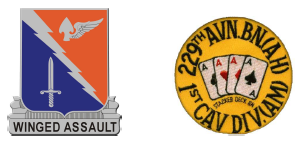Difference between revisions of "MW Perform simulated max GW approach landings"
From 229ahb
(Created page with "File:229AHB_logo.png '''Master Wings requirement:''' TASK 2093 ''- PERFORM SIMULATED MAXIMUM GROSS WEIGHT APPROACH AND LANDINGS'' ===31. TASK 2093: Perform simulat...") |
(No difference)
|
Latest revision as of 08:29, 20 February 2020
Master Wings requirement: TASK 2093 - PERFORM SIMULATED MAXIMUM GROSS WEIGHT APPROACH AND LANDINGS
Contents
- 1 31. TASK 2093: Perform simulated maximum gross weight approach and landings
- 2 =31.1. Objective: The pilot will develop the knowledge and skills necessary to perform maximum gross weight approach and landings as per task 2093 UH-1h ATM 2007 2000’ PRESS ATT 30’C 9500LBS
- 3 =31.2. Competencies expected: Senior Wings certification standards and for this task, the pilot will demonstrate
- 3.1 31.2.1. determining the approach angle requiring the least amount of power without compromising a viable escape plan
- 3.2 31.2.2. correctly predicting the maximum torque required for the manoeuvre (UH-1H ATM appendix B Torques of Power Management, refers)
- 3.3 31.2.3. manoeuvring as necessary to intercept approach angle
31. TASK 2093: Perform simulated maximum gross weight approach and landings
Task criteria: - Coastal airfield, apron cold start - standard atmospheric pressure set to 101.325 mbar – 29.921 inHg / 760 mmHg - temperature 38C - Load 2 x 19HE, 2 front Guns, 2 x M60 side gunners & 68% fuel load = 9509lbs / 4013kg
=31.1. Objective: The pilot will develop the knowledge and skills necessary to perform maximum gross weight approach and landings as per task 2093 UH-1h ATM 2007 2000’ PRESS ATT 30’C 9500LBS
=31.2. Competencies expected: Senior Wings certification standards and for this task, the pilot will demonstrate
31.2.1. determining the approach angle requiring the least amount of power without compromising a viable escape plan
31.2.2. correctly predicting the maximum torque required for the manoeuvre (UH-1H ATM appendix B Torques of Power Management, refers)
31.2.3. manoeuvring as necessary to intercept approach angle
31.2.4. calling out torque, airspeed, and vertical speed on approach
31.2.5. achieving transverse flow shudder (etl)and a speed of 300 feet per minute (FPM) or less within last 50 feet of approach
31.2.6. executing a smooth, controlled termination to the ground or the hover height determined in the reconnaissance
31.2.7. correctly determine wind direction and velocity in the landing zone (LZ) after landing, and perform post-task analysis (PTA)
